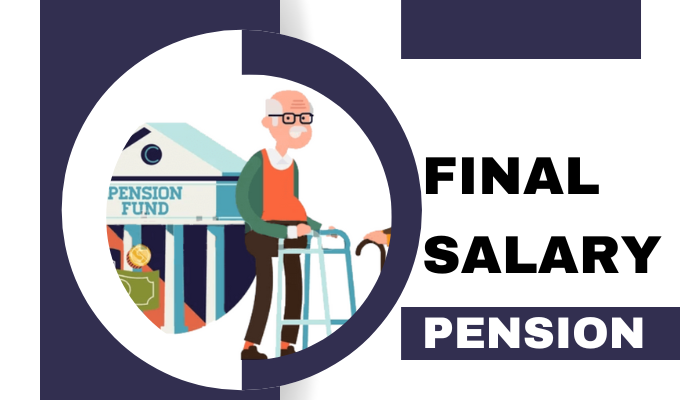We suggest that you read this post to learn more about Final Salary Pension. How Does the Final Salary Pension Operate?
Final Salary Pension
A final salary plan, also referred to as a defined benefit plan, is one type of pension that ensures you will get a lifetime income upon retirement. Your employer promises to pay you a fixed monthly sum when you retire under this retirement plan.
The primary providers of FS pensions are government employers and the public sector (health, education, etc.). Your employer is in charge of managing and funding the pension plan and making sure you have enough money when you retire.
It’s based on your earnings at that age and often pays you an alluring pension throughout the term of retirement. This article contains a more in-depth explanation of the plan.
What is Final Salary Pension?
The final salary pension, also referred to as the defined pension, is a type of employment pension that guarantees a lifetime income upon retirement. With this type of plan, you be paid a fixed amount upon retirement based on your final salary.

Apart from paying contributions to the plan, your employer bears the responsibility of ensuring that there are adequate funds to cover your pension upon retirement. Additionally, you have the option to contribute to the plan; in fact, depending on the plan, this can even be required.
Retirement income, whether determined by average or ultimate wage, is a fixed amount that is guaranteed regardless of how well the underlying investments perform. How long you participated in the program and how much you were paid when you quit or retired will determine how much money you be paid.
Final Salary Pension Overview
How Does it Work?
The program will determine your typical retirement age, and on this day your pension will begin to be paid. If you are still working for the employer at the time of retirement, or when you quit the program, your pay will decide how much you be paid.
Final salary pensions usually contain additional benefits like:
Although businesses frequently contribute the majority of the funds, employee donations are still appreciated. The program is run by trustees to ensure fairness and safety for each and every participant, and it follows established policies and protocols.
Final Salary Pension Calculation
Your defined benefit plan pension income is determined by three factors:
To calculate your possible final salary pension income, add up the years you have participated in the scheme. Take that and multiply it by the accrual rate of your plan. Your pensionable earnings should then be multiplied by the answer.
Transferring Final Salary Pension
You are not obligated to continue contributing to your pension plan. At this time, you have the option to withdraw from your final salary plan. You can convert a final salary pension into a defined contribution pension plan if you’d prefer greater control. Some employers might also offer you a switcher reward.
It is noteworthy that a few of public sector programs are not convertible to defined contribution plans, such as the National Health Service (NHS) pension. This is because it is unfunded, or supported by general taxation, rather than being affiliated with a specific pension fund.
We really appreciate you taking the time to read this Final Pension Scheme post in our web; please return for more relevant news.
ITG House
